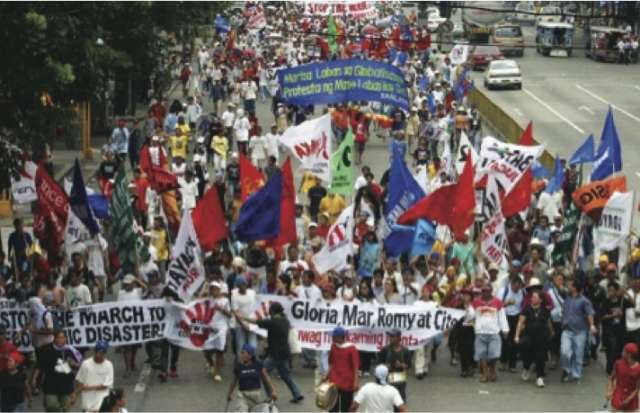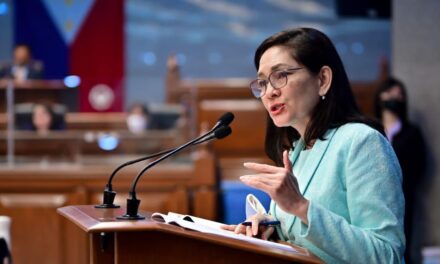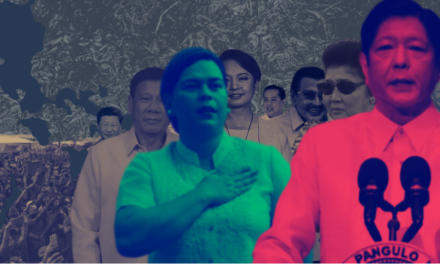By Joseph Purugganan, Afsar Jafri and Jacques-Chai Chomthongdi
Several milestones in the campaign against the World Trade Organization and free trade agreements will be marked this year as the struggle continues. Many of these key moments in the struggle involve major mobilizations in Asia spearheaded by peasant and fishers organizations working closely with other social movements to resist the onslaught of free trade and investment policies on agriculture, on jobs, on the environment and people’s rights.
As we prepare and gear up for another battle in Bali for the 9th Ministerial Meeting of the World Trade Organization in December, we look back at some of these significant moments and reflect on how we can strengthen our movements and intensify our collective actions in the months to come.
Lee Kyung Hae (1947-2003)
This year marks the 10th anniversary of the passing of Lee Kyung Hae, the South Korean farmer who had lost his farm in Jangsu, in Northen Cholla Province and joined protests against the WTO in Cancun, Mexico in 2003. Carrying a banner that said “WTO kills farmers,” he stabbed himself to death to dramatize the effect WTO policies have had on farmers.
Lee’s sacrifice amplified the voices of farmers, fishers, workers worldwide who had been dispossessed and marginalized by free trade policies. Lee’s final act of protest had a deeply profound impact on many activists in Cancun and across the world. “Strengthened by the emotional unity born of the shared grief” as one account put it “the demonstrators were inspired not only by his death but also by its symbolic register of the millions of deaths which his gesture evoked.”[i] September 10 is now commemorated across the globe as international day of struggle against the WTO.
National platforms and mobilizations
The campesino-led mobilizations in Cancun in 2003 were paralleled by different actions across Asia.. In Indonesia, Thailand, Philippines and India, peasants, fishers, workers, women’s groups came out on the streets to express opposition to the WTO and free trade policies.
Many of these mobilizations were coordinated under broad national networks that were established as multi-sector platforms of peoples’ resistance. In Thailand, the slew of FTA negotiations with the United States, Australia, and China brought together various peoples organizations, civil society groups and academics around the collective call for more transparent trade negotiations processes. FTA Watch, a national coalition, was formed in 2003 to catalyze the people’s opposition to the FTAs. But perhaps one of the most significant expressions of a show of force of the anti-FTA movement in Thailand came in January 2006 in an historic mobilization against the Thai-US FTA in Chiangmai. As described in an FTA Watch report:[ii]
“On 11 January 2006, some 15-20,000 people laid siege to the Sheraton Hotel by the Ping River in Chiang Mai province, the venue for the sixth round of negotiations on the USA-Thailand Free Trade Agreement. Many differences between negotiating positions had been resolved in previous rounds, but not the issues of intellectual property and investment. Most demonstrators were drawn from the ranks of people living with HIV/AIDS (PLWHA) and farmers’ groups. About 50 of them, with black cloth tied around their necks, swam across the torrential river in an attempt to enter the hotel through the back. At the front gate, throngs of people tried to push the iron barricades set up and now pushed back by 1,000 police officers. As demonstrators outnumbered police, the obstacle was eventually removed, and the protesters advanced to the front gate of the hotel building. We besieged the hotel all night and the Thai-US negotiators, including Barbara Weisen, leader of the US negotiation team, had to sneak out in the middle of the night. That became the last round of FTA negotiations thus far.”
Since then, FTA watch has come to represent the critical voice in Thailand against these unjust economic agreements. The EU-Thai FTA talks, which were launched in March 2013, is now the target of spirited campaigning of FTA Watch. At the forefront of the current campaign, brought together under the broad umbrella of FTA Watch, are the HIV-AIDS patients’ network fighting proposals that could undermine peoples’ access to medicines and public health, and the no-alcohol movement that strongly opposes the liberalization of alcoholic beverage.
In the Philippines, various grassroots organizations, social movements, NGOs and individuals came together under the banner of Stop the New Round Coalition to spearhead a national campaign to derail the Doha round talks. SNR as the coalition came to be known was established and formally launched in 2003 and led a year-long campaign that put pressure on the Philippine government to adopt a national agenda for Cancun based on three key points: opposition to a new round of WTO trade negotiations; opposition to further WTO trade and trade-related liberalization and opposition to the incorporation of the “new issues” of investment, competition policy, government procurement, and trade facilitation into the WTO agenda.
SNR led a nationwide campaign, with actions and mobilizations across Luzon, Visayas and Mindanao. All throughout the year-long campaign, the coalitions engaged the Philippine government in a public debate in official government meetings, in the halls of Congress, and on the streets of Manila, Cebu, Davao and other major cities across the country. The people’s call against the WTO and the Doha Round reached its crescendo in a series of mass actions in September 2003 in the lead up to the Cancun ministerial meeting. The Cancun actions at the national level featured 2,000 people-strong Luzon-wide caravan led by farmers and fishers, which culminated in a huge mobilization of around 8,000 people led by farmers, fishers, workers, students who marched toward Malacañan Palace.
In India, several mobilizations have also been organized against WTO in last 17 years, but the most significant one was by the Indian Peoples Campaign Against the WTO (IPCAWTO) in 2001, just before the Doha Ministerial. In a huge rally and protests organized at the Purana Qila grounds in Delhi, members of the IPCAWTO which included all left political parties and Samajwadi Party besides four former Prime Ministers, Mr. V. P. Singh, Mr. Chandrasekhar, Mr. IK Gujral and Mr. Deve Gowda, joined the mobilization and led the movement against the Indian government positions at the WTO negotiations. This yielded some positive results in Doha where India used explicit consensus (read veto) against European Union push for starting negotiations on the Singapore issues (trade and investment, trade and competition, transparency in government procurement practices and trade facilitation). Focus on the Global South is also part of the IPCAWTO.
Another key moment in the campaign against free trade agreements was the formation of Indian Forum against FTAs in September 2008. In a strategy meeting organized in Delhi in September 2008, several representatives from trade unions, peoples’ movements and civil society organizations came together to understand the critical issues involved in the EU India FTA and decided to form a coalition to work against its negative impact on people in India. This coalition, of which Focus India has been a member since its inception, organized its first national consultation and mobilization against FTAs in the period 31 August – 1 September 2009 in New Delhi, to discuss the implications of the Government of India’s (GoI) bilateral and regional FTAs being negotiated with both developed and developing countries. They also joined the mobilization against the WTO Mini ministerial in Delhi hosted by India to revive the WTO negotiations.
Another important mobilization against free trade took place on 3rd September 2009 in Delhi just before the Mini Ministerial in Delhi. This mobilization was also joined by IPCAWTO, all left political parties, left farmers and trade unions and other independent farmers organizations besides the members of Indian Forum Against FTAs. Courting arrest, more than 51,000 farmers from Bhartiya Kissan Union (BKU is an affiliate of Via Campesina in India) and other groups assembled in front of the Parliament against Indian government’s unnecessary push to revive the WTO negotiations and against its hosting of the WTO mini Ministerial in Delhi to signal the global community that the “Doha impasse has been broken”. They were also agitated over the big shift in India’s position towards WTO despite fundamental differences till December 2008 on the contentious issue of modalities in agriculture. In this mobilization, the Indian farmers, for the first time, expressed their open opposition to the FTAs, especially the one being signed with the European Unions and other developed countries.
The Battle in Hong Kong (2005)
A year after the collapse of the Doha trade talks in Cancun, the WTO quickly recovered putting together the now infamous ‘July package’ which became instrumental in ensuring that the talks progressed towards a final deal at the 6th Ministerial Conference in Hong Kong in December 2005.
Determined to sustain the battle that had been won in Cancun, social movements from across Asia, including workers, mobilized in huge numbers in Hong Kong. For a week, the people’s resistance took the form of various activities in the ‘people’s camps’, spirited discussions on trade and alternatives to the WTO, lively concerts and cultural programmes, and militant marches on the streets of Hong Kong.
The metropolitan district of Wan Chai became the staging ground of the historic march on 17 December 2005 where thousands of police in full-anti-riot gear clashed with an equal number of activists led by peasants, fishers, migrant workers from across Asia. The ensuing violent dispersal by the police who used tear gas and truncheons ended with the arrest and detention of hundreds of activists.
Earlier, there had been similar militant actions led by Filipino and Indonesian fishers off the waters of the Victoria Harbour. Culminating their Fishers Voice, Fishers Voyage year-long campaign, fishers from the regional network Southeast Asia Fishers for Justice (SEAFISH) sailed in two huge boats donning banners and colourful flags with messages “defend our fishing grounds”, “protect our livelihoods” and “No Deal! as an unprecedented act of protest against the WTO. The fluvial parade and the fishers campaign aimed to highlight not just the devastating impact of the free trade on the fisheries sector in Southeast Asia but also the sorry state of marginalization and neglect faced by small fishers around the region, whose interests in the talks were drowned out in favor of commercial and corporate interests.
Geneva 2006
Despite the protests, the Hong Kong Ministerial was able to produce a Ministerial declaration that ensured that the talks would continue on after Hong Kong. In the summer of 2006, the WTO General Council Meeting was held in Geneva against the backdrop of continuing debates among Member countries inside the talks mainly over the intransigence of major trade powers, the United States and the European Union, as well as continuing protests outside. The stalemate eventually led to an announcement that the Doha talks collapsed anew.
Here is an account of the protest actions from Carlos Merentes of Via Campesina:
“On Friday July 28, 2006, La Vía Campesina and other social organizations marched from Wilson Palace to the WTO, to accompany the Fluvial Parade of the fisher folks in the Lake of Geneva to celebrate the collapse of the WTO. The Filipino fisherfolks launched four traditional fishing boats decorated with huge banners against the WTO, and navigated until they reached a small dock in the back of the WTO headquarters. A flotilla of yachts of local supporters and social organizations accompanied the fisherfolks boats. The marchers followed them to that point walking along the edge of the lake. In front of the march, a tractor driven by a Swiss farmer carried a giant effigy depicting Pascal Lamy’s severed head. Following behind the tractor the Korean Peasants League carried a coffin symbolizing the death of the WTO. They were followed by a large delegation of La Vía Campesina representing 12 countries, members of social movements like Friends of the Earth International, Our World is not for Sale, Focus on the Global South, the Geneva Coalition Against the WTO as well as local farmers and activists. The fisherfolks got off their boats and everybody marched to the WTO.
The march ended across the street from the WTO. Police officers did not allow the marchers to get close to the main entrance to deliver the coffin. A cheerful and colorful rally was held at this point were Henry Saragih from La Vía Campesina told the crowd; “The Doha Round is dead, long live food sovereignty!” Walden Bello from Focus on the Global South urged the marchers: “The WTO is dying, let’s bury the sucker!” This was a day of celebration for international social movements opposed to the WTO, free trade and neoliberalism in general.”[iii]
Marching On (2009-present)
The resistance to WTO and free trade agreements have continued in various protests and mobilizations at the national regional and global level. New networks and campaign platforms have emerged and alongside more establish ones, continue to provide the space to consolidate the people’s opposition to free trade. These formations have been strengthened with the active participation of new constituencies that have taken up the cudgels of campaigning against far reaching economic agreements and policies. Groups like patients-networks advocating for access to medicines, human rights organizations promoting economic, social and cultural rights, and various groups opposing unjust investment policies that perpetuate corporate rule, have joined hands with anti-FTA networks and campaigns to push back the free trade and investment agenda and to advance alternatives build on the ideas of food sovereignty and economic justice.
Bali (2013): A moment for convergence
In December 2013, at the 9th Ministerial Conference of the WTO in Bali, Indonesia, social movements will once again gather to express the people’s opposition to WTO and free trade. The mobilizations in Bali are expected to bring together some of the veterans of previous anti-WTO actions over the years. As before, peasants and fishers will be at the frontlines leading the mobilizations in Bali, joined by a wider phalanx of workers, migrants, youth, women’s groups, climate justice activists, HIV-AIDS activists and health advocates, anti-TNC campaigners, and human rights defenders, all struggling for systemic alternatives to capitalism.









